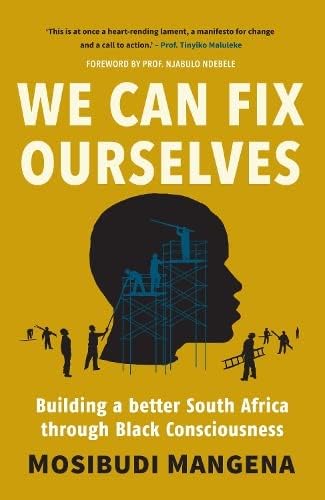We Can Fix Ourselves Building a better South Africa through Black Consciousness
##plugins.themes.bootstrap3.article.main##
Keywords
Résumé
Scholarship on Black Consciousness in the so-called post-apartheid South Africa is not as prominent as its counterpart within the Congress tradition. The fundamental reason for this is the hegemony and pervasiveness of whiteness and its aversion to the Black Radical Tradition. Another reason is the “success” of the Congress tradition as epitomized by the ANC through its so-called negotiations to usher in an era that is compatible with its political vision of a non-racial constitutional new South Africa. It is in this sense that the intellectual and ideological marginalization of the Azanian tradition which Black Consciousness is a part of, is intimately linked to the “failure” of its political vision.Why this political and historical backdrop? This is because the book We Can Fix Ourselves: Building a better South Africa through Black Consciousness (2021) by Mosibudi Mangena under review locates itself within the philosophy of Black Consciousness in discussing the fundamental problem of the so-called new democratic South Africa.
##plugins.generic.articleMetricsGraph.articlePageHeading##
Références
Dladla, N, The liberation of history and the end of South Africa: some notes towards an Azanian historiography in Africa, South, South African Journal on Human Rights, Volume 34 Number 3, 2018, p. 415 – 440. https://doi.org/10.1080/02587203.2018.1550940
Edgar, R.R and Ka Msumza, L. 2018. Africa’s Cause Must Triumph: The Collected Writings of A.P. Mda. South Africa: Best Red.
Hook, D. 2016. To whom does the land belong?”: Mogobe Bernard Ramose talks to Derek Hook, PINS, 2016, 50, 86 – 98, https://doi.org/10.17159/2309-8708/2016/n50a5
Lembede, A.M. 2015. Freedom in our Lifetime. South Africa: Kwela.
Magubane, B. 1995. The Making of a Racist State: British Imperialism and the Union of South Africa, 1875-1910. New York: Africa World Press.
Mangena, M. 2021. We can fix ourselves: Building a better South Africa through Black Consciousness. South Africa: Kwela Books.
Miller., R.J 2011.,’The Doctrine of Discovery the International Law of Colonialism: A comparative analysis’, 15 Lewis & Clark L. Rev. 847 (2011).
Modiri Joel M. (2018): Conquest and constitutionalism: first thoughts on an alternative jurisprudence, South African Journal on Human Rights, https://doi.org/10.1080/02587203.2018.1550939
Ramose, M. B 2005. ‘Towards Black Theology without God’. Theologia Viatorum, Journal of Theology and Religion in Africa, Vol 29 no 1. pp 103-130.
Ramose, M. B. 2007. ‘In Memoriam: Sovereignty and the “new” South Africa.’ Griffith Law Review Vol 16. pp 310-329. https://doi.org/10.1080/10383441.2007.10854593
Ramose, M. B. 2018. ‘Towards a Post-conquest South Africa: beyond the constitution of 1996’. South African Journal on Human Rights. Vol, 34. Pp 326-341. https://doi.org/10.1080/02587203.2018.1550937
Sobukwe, R M (1959/2013) Opening address to PAC inaugural convention in Karis T G and Gerhardt G M (eds) From protest to challenge: A Documentary history of African politics in South Africa, 1882-1990. Volume 3: Challenge and violence, 1953-1964. Auckland Park: Jacana.
Wolfe, P., 2006. Settler colonialism and the elimination of the native, Journal of Genocide Research (2006), 8(4), December, 387–409. https://doi.org/10.1080/14623520601056240


